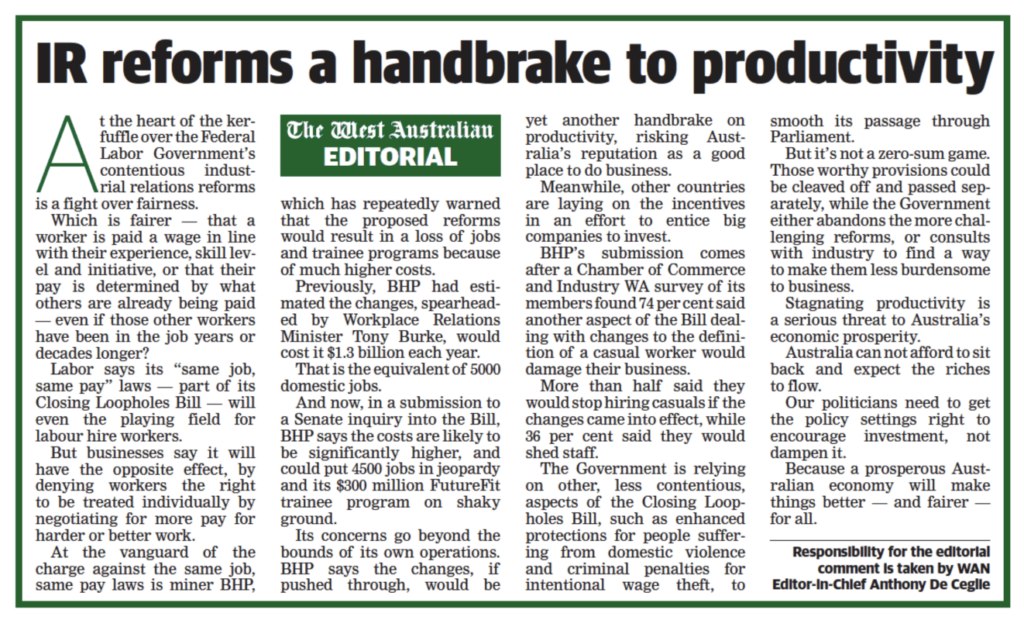

Responsibility for the editorial comment is taken by WAN Editor-in-Chief Anthony De Ceglie.
At the heart of the kerfuffle over the Federal Labor Government’s contentious industrial relations reforms is a fight over fairness.
Which is fairer — that a worker is paid a wage in line with their experience, skill level and initiative, or that their pay is determined by what others are already being paid — even if those other workers have been in the job years or decades longer?
Labor says its “same job, same pay” laws — part of its Closing Loopholes Bill — will even the playing field for labour hire workers.
But businesses say it will have the opposite effect, by denying workers the right to be treated individually by negotiating for more pay for harder or better work.
At the vanguard of the charge against the same job, same pay laws is miner BHP, which has repeatedly warned that the proposed reforms would result in a loss of jobs and trainee programs because of much higher costs.
Previously, BHP had estimated the changes, spearheaded by Workplace Relations Minister Tony Burke, would cost it $1.3 billion each year.
That is the equivalent of 5000 domestic jobs.
And now, in a submission to a Senate inquiry into the Bill, BHP says the costs are likely to be significantly higher, and could put 4500 jobs in jeopardy and its $300 million FutureFit trainee program on shaky ground.
Its concerns go beyond the bounds of its own operations. BHP says the changes, if pushed through, would be yet another handbrake on productivity, risking Australia’s reputation as a good place to do business.
Meanwhile, other countries are laying on the incentives in an effort to entice big companies to invest.
BHP’s submission comes after a Chamber of Commerce and Industry WA survey of its members found 74 per cent said another aspect of the Bill dealing with changes to the definition of a casual worker would damage their business.
More than half said they would stop hiring casuals if the changes came into effect, while 36 per cent said they would shed staff.
The Government is relying on other, less contentious, aspects of the Closing Loopholes Bill, such as enhanced protections for people suffering from domestic violence and criminal penalties for intentional wage theft, to smooth its passage through Parliament.
But it’s not a zero-sum game. Those worthy provisions could be cleaved off and passed separately, while the Government either abandons the more challenging reforms, or consults with industry to find a way to make them less burdensome to business.
Stagnating productivity is a serious threat to Australia’s economic prosperity.
Australia can not afford to sit back and expect the riches to flow.
Our politicians need to get the policy settings right to encourage investment, not dampen it.
Because a prosperous Australian economy will make things better — and fairer — for all.
Responsibility for the editorial comment is taken by WAN Editor-in-Chief Anthony De Ceglie






